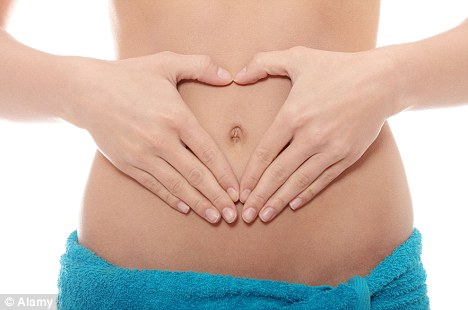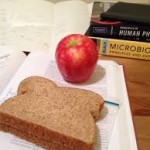Digestion is the body’s process for breaking down foods that you have eaten. Some elements of these foods are used to produce energy and the remaining waste is prepared for excretion. Slow digestion can make you feel sluggish and may cause constipation. However there are ways to naturally speed up your digestion.
The Foods You Eat Make a Difference
Many people do not realize just how important it is to eat the correct foods in order to optimize proper digestion. Eating foods like fresh fruits, raw vegetables and green leafy salads will aid in the digestion process. In addition, including at least one serving of yogurt into your daily diet plan can also improve digestion. This is because yogurt contains an enzyme, which is considered good bacteria and assists in breaking foods down in the digestive tract and stomach. If you do not include any of the above mentioned foods in your diet and you eat a variety of greasy, high-fat foods, you are bound to suffer from poor digestion. As a result you may develop a number of undesirable conditions, from stomach ulcers and gastrointestinal disease.
Vitamin A
Studies have shown that vitamin A is very important when it comes to supporting a healthy mucosal lining within the gastrointestinal tract. There are a variety of foods which are rich in vitamin A and should be a part of a regular diet plan to aid in digestion. In addition, there is research to suggest that avocados, which are very high in beta-carotene, are a very good supplement in terms of digestion. This is because the beta-carotene content in the avocado is actually converted into vitamin A. To learn more about foods which contain vitamin A and aid in digestion, try doing an online search or consulting a nutritionist to find out more options for foods containing this important supplement. In addition, it is a good idea to take some sort of multiple digestive enzyme supplement each day.
When You Eat Makes a Difference
It is important to be sure that you are actually hungry when you eat. If you eat out of boredom or when you are not truly hungry, your brain will not signal your body for proper digestion. It is also a very good idea to take a few minutes to smell and visualize your food as this will lead to the production of saliva prior to eating your first bite. Saliva is actually considered the very first component in the digestion process. This is because it chemically breaks down the food you eat before you even swallow it. Proper salivation is vital for efficient digestion. You may also want to avoid drinking a lot of water while eating as this will dilute the saliva and digestive acids contained within the stomach.
Chew Your Food Well
It is important to thoroughly chew each and every bite before you swallow it. If you swallow your food before chewing it properly it will not be broken down correctly and the result will be incomplete digestion of your food. Your food must be broken down into very small pieces in order for the chemical digestion process to occur within your stomach. Many people suggest that you chew each bite at least 50 times before swallowing it. This is another reason that hurried eating can pose a problem. When you’re in a hurry to finish your meal, there is a very good chance you will not thoroughly chew your food. In order to be sure that you can chew each bite, make sure you allow yourself an appropriate amount of time for meal intake.
A Salad a Day Keeps the Doctor Away
Most people know that eating salads is beneficial to their health. However, there is much more to eating salads than many people know. Lettuce of all varieties is considered roughage. Roughage is extremely important as it is a natural digestion aid. People who do not eat enough green leafy vegetables are bound to have trouble digesting their food. Try eating a small salad before your meal for optimal digestion. If you’re not fond of salads, there are many things that you can put on your salad in order to improve the taste and make it a much more attractive option. Roughage is also very high in fiber, and fiber intake is extremely vital in proper digestion.
Exercise Before Eating
If you have been suffering from problems digesting your food properly, you may want to consider incorporating a little bit of exercise into your daily routine. Specifically, exercising for at least 20 to 30 minutes prior to mealtime can aid the digestive process tremendously. Something as simple as taking a long brisk walk or riding a bicycle before eating a meal, can improve digestion quite a bit. Some people choose to use a treadmill or stationary bicycle if they do not have time to actually leave their home before eating. No matter what type of exercise you choose, it is important to try and do something active before sitting down to eat. It is also suggested that you wait at least one hour for your food to digest before laying down to go to sleep. People who lay down to sleep too soon often find themselves experiencing heartburn and other gastrointestinal issues.














